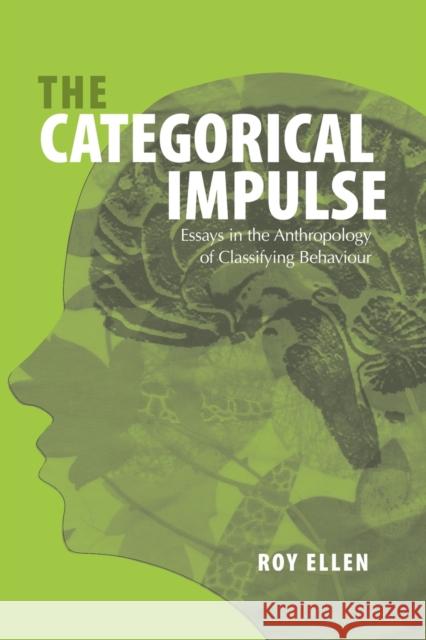The Categorical Impulse: Essays on the Anthropology of Classifying Behavior » książka
The Categorical Impulse: Essays on the Anthropology of Classifying Behavior
ISBN-13: 9781845451554 / Angielski / Miękka / 2008 / 248 str.
The Categorical Impulse: Essays on the Anthropology of Classifying Behavior
ISBN-13: 9781845451554 / Angielski / Miękka / 2008 / 248 str.
(netto: 130,37 VAT: 5%)
Najniższa cena z 30 dni: 135,22
ok. 30 dni roboczych.
Darmowa dostawa!
Classification, as an object of recent anthropological scrutiny came to prominence during the 1960s, exemplified in the British (constructionist) tradition by the writings of Mary Douglas, and in the American ethno-semantics (cognitive) tradition by the likes of Harold Conklin and Brent Berlin. At the time, these approaches seemed by turns to contradict each other, or even to exist in parallel universes. However, over the last 30 years we have witnessed both a renewed interest in classification studies as well as a cross-fertilization of these once antagonistic approaches. These essays by one of leading scholars in this field bring together a body of influential and inter-linked work which attempts to bridge the divide between cultural and cognitive studies of classification, and which develops a more embedded and processual approach. In particular, the essays focus on people's categorization of natural kinds as a means through which to obtain an understanding of how classifying behavior in general works, engaging with the ideas of both anthropologists and psychologists. The theoretical background is set out in an entirely new and substantial introduction, which also provides a comprehensive and systematic review of developments in cognitive and social anthropology since 1960 as these have impacted on classification studies. In short, it constitutes a useful and approachable introduction to its subject. Roy Ellen was educated at the London School of Economics and is Professor of Anthropology and Human Ecology at the University of Kent at Canterbury, where he has taught since 1973. His numerous and varied publications include Environment, Subsistence and System (1982), The Cultural Relations of Classification (1993), and most recently, On the Edge of the Banda Zone (2003).
Classification, as an object of recent anthropological scrutiny came to prominence during the 1960s, exemplified in the British (constructionist) tradition by the writings of Mary Douglas, and in the American ethno-semantics (cognitive) tradition by the likes of Harold Conklin and Brent Berlin. At the time, these approaches seemed by turns to contradict each other, or even to exist in parallel universes. However, over the last 30 years we have witnessed both a renewed interest in classification studies as well as a cross-fertilization of these once antagonistic approaches.These essays by one of leading scholars in this field bring together a body of influential and inter-linked work which attempts to bridge the divide between cultural and cognitive studies of classification, and which develops a more embedded and processual approach. In particular, the essays focus on peoples categorization of natural kinds as a means through which to obtain an understanding of how classifying behavior in general works, engaging with the ideas of both anthropologists and psychologists. The theoretical background is set out in an entirely new and substantial introduction, which also provides a comprehensive and systematic review of developments in cognitive and social anthropology since 1960 as these have impacted on classification studies. In short, it constitutes a useful and approachable introduction to its subject.Roy Ellen was educated at the London School of Economics and is Professor of Anthropology and Human Ecology at the University of Kent at Canterbury, where he has taught since 1973. His numerous and varied publications include Environment, Subsistence and System (1982), The Cultural Relations of Classification (1993), and most recently, On the Edge of the Banda Zone (2003).











